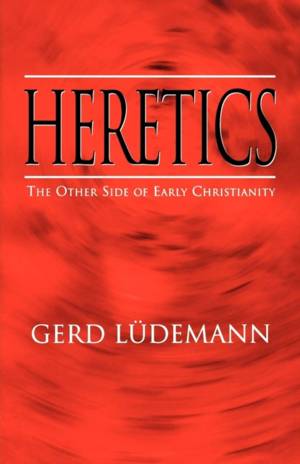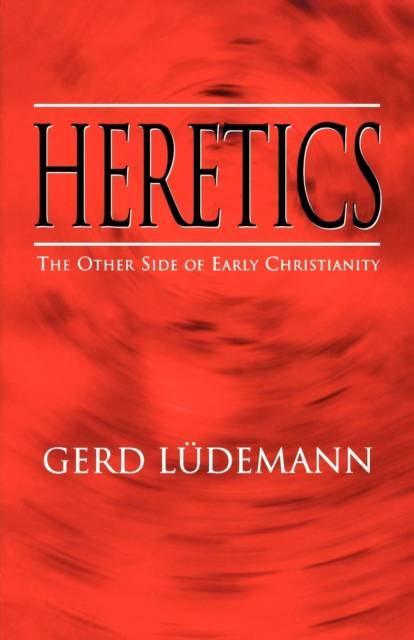
- Retrait gratuit dans votre magasin Club
- 7.000.000 titres dans notre catalogue
- Payer en toute sécurité
- Toujours un magasin près de chez vous
- Retrait gratuit dans votre magasin Club
- 7.000.0000 titres dans notre catalogue
- Payer en toute sécurité
- Toujours un magasin près de chez vous
27,95 €
+ 55 points
Description
According to the official view, held for almost two thousand years, early Christianity was marked by great harmony, and heresy only emerged at a later stage. This book, written in nontechnical language for interested non-theologians, argues that such a picture is wishful thinking. Using all available sources, including newly-discovered Gnostic texts, Professor Luedemann argues that in many areas, 'heresy' in fact preceded 'orthodoxy' and was later forcibly replaced by it. The controversies shed an interesting light on the human character and concerns of the first Christians, who were occupied not only with right belief but also with power. The first chapter investigates the positions of Christians in Jerusalem in the first two centuries, since they were the ones who in fact introduced the concept of heresy into the church, and pays particular attention to the revision of the portrait of Paul and his theology. Then it goes on to the dramatic events around Marcion and his approach to a scriptural canon. Thirdly, it examines the conflicts underlying the Johannine writings, the formation of the Apostles' Creed and the formation of the New Testament canon. Professor Luedemann argues that his findings have important and liberating consequences for the understanding of both Christianity and the Bible.
Spécifications
Parties prenantes
- Auteur(s) :
- Editeur:
Contenu
- Nombre de pages :
- 352
- Langue:
- Anglais
Caractéristiques
- EAN:
- 9780334026167
- Date de parution :
- 19-06-12
- Format:
- Livre broché
- Format numérique:
- Trade paperback (VS)
- Dimensions :
- 140 mm x 216 mm
- Poids :
- 408 g

Les avis
Nous publions uniquement les avis qui respectent les conditions requises. Consultez nos conditions pour les avis.






